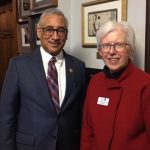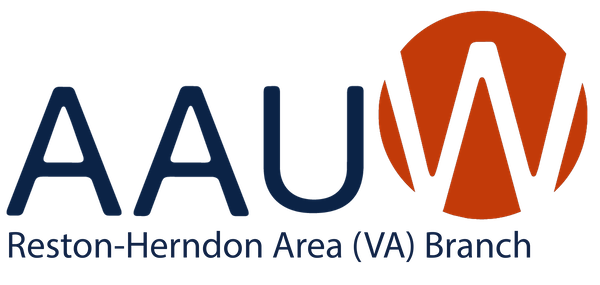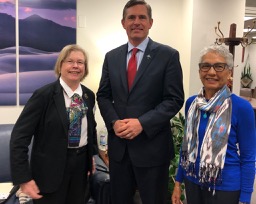 Act — Support Paid Leave for All
Act — Support Paid Leave for All
For the more than three decades since the Family and Medical Leave Act (FMLA) was signed into law on February 5, 1993, it has remained a cornerstone piece of legislation in efforts to create healthier and more equitable workplaces. While FMLA provides job-protected, unpaid leave, many people can’t afford to take leave without pay. Nearly 40 percent workforce is not eligible for FMLA, with Black, Latina, and Native workers disproportionately impacted by this.
We all need access to paid leave, and the Family and Medical Insurance Leave (FAMILY) Act, would do just that. We know that women continue to disproportionately bear the economic opportunity cost of providing care for children or elderly family members. Congress must do better for women and families.
This legislation builds on successful state programs, creating a national paid leave insurance program, to provide wage replacement and job protection. It would expand the definition of “family” to cover more loved ones, cover care for military families, and support those experiencing domestic violence. Paid leave has broad bipartisan voter support.
As we honor how FMLA has protected workers for the past 31 years, urge your members of Congress to take the next step and support the FAMILY Act (H.R. 3481) to support paid leave for all!
Learn — Exploring the Intersection of Race and Gender
Racial and gender-based inequities persist in the United States’ education system. Their effects are clear. In K-12 schools, Black students are punished more harshly and more frequently than white students for similar offenses. Data from the U.S. Department of Education finds that Black girls are more significantly more likely than white girls to be suspended or receive referrals to law enforcement.
To combat the damaging impact of this reality, AAUW supports policies like the Counseling Not Criminalization Act, which provide money and resources to schools, and that increase the presence of mental and behavioral health personnel in schools. These steps have been shown to improve educational outcomes, increase attendance and graduation rates, and lower the rates of suspension and expulsion.
As Black women enter college, they are more likely to have to take on more student loan debt to acquire a degree. The student loan debt crisis highlights glaring disparities in who accumulates student loan debt, with women of color encountering the greatest challenges due to the combination of wealth gaps, gender, and racial pay gaps. To uplift Black women in college, AAUW continues to advocate for policies that make college more affordable, including increasing Pell Grant awards, and providing meaningful debt relief.
Black women then graduate into a pay gap that is wider for them than other women — with full-time workers earning only 69 cents in comparison to white men. This adds up to a loss of more than $1 million over the course of a 40-year career, according to the National Women’s Law Center. Additionally, women still face discriminatory employment practices and inadequate legal protections at work. This is why AAUW continues to fight for stronger pay equity laws, improved paid leave and child support, and collection of wage data that helps identify ongoing areas of gender and racial discrimination.
AAUW supports closing the gender, ethnic, and racial gaps in education and employment. This month and every month, we work to ensure that Black women and their families are served in the actions and policies we support. The bottom line is this: We need to address when and where sexism and racism intersect to truly foster equity for all women.
Engage — Share the important work we’re doing
- March 12, 2024 was designated Equal Pay Day 2024. Each year, this symbolic day is used to raise awareness around and combat the impact of pay inequities. Learn how you can raise awareness with our Pay Equity Now Toolkit.
- A slate of anti-abortion bills were recently introduced in the House of Representatives, including the Pregnant Students’ Rights Act. AAUW joined coalition partners in voicing strong opposition to the bill, which fails to address key barriers to pregnant students’ educational attainment. The White House also expressed opposition to the bill in its current form. The bill (H.R. 6914) passed the House in January and it faces an uncertain outcome in the Senate.
- In a positive step for student borrowers, the U.S. Department of Education responded to a call from AAUW and coalition partners, to hold a forth session of the negotiated rulemaking process to address student debt relief. The additional session will provide an opportunity to give more attention to the significant burden of student loan debt for Black and Hispanic women. The fourth session will be held on Feb. 22 and 23.
- As a result of sustained advocacy, in January, Congress reached a bipartisan agreement on a tax package that will temporarily expand the Child Tax Credit (CTC). AAUW joined over 350 organizations in urging Congress to prioritize this expansion which would benefit about 80% of the 19 million children who are currently left out of the full CTC or don’t receive it at all because their parents’ earnings are too low.
- The Bipartisan Workforce Pell Act (H.R. 6585) was advanced out of the House Education & Workforce Committee in December 2023. The bill would allow federal Pell Grants to be used for short-term education and job training programs. Higher education advocates have raised concerns over the inclusion of for-profit schools and how the bill is funded.
- AAUW joined a letter in opposition to the College Cost Reduction Act (H.R. 6951) due to our concerns that the bill would repeal current Financial Value Transparency and Gainful Employment regulations which AAUW has supported as a way of protecting students from unaffordable student loan debt.
- The U.S. Department of Education began negotiated rulemaking sessions in January to improve regulations that hold higher education institutions accountable for the quality and integrity of their programs, including reforms to give students timely access to financial aid disbursements. AAUW joined partners in recommending reforms to the accreditation process for higher education institutions to better protect students from predatory practices and ensure they receive a high-quality education.
- Last year, a bipartisan Paid Family Leave Working Group in Congress was established to explore federal paid family leave policies. In December 2023, the Working Group released a legislative framework that will serve as the basis for roundtable discussions later this year and is gathering input from stakeholders to inform their efforts to expand paid leave access in the United States.
- AAUW’s National Conference for College Women Student Leaders (NCCWSL) was held May 30 – June 1, 2024. NCCWSL brings together hundreds of college students every year for leadership training, advocacy, and networking. Please share widely and reach out to nccwsl@aauw.org with any questions.
- Join AAUW Lobby Corps and make your voice heard! Virtual trainings for the coming year are being scheduled. All AAUW members and college students in the Washington, D.C. area are welcome to join Lobby Corps.
AAUW Action Fund
1310 L St. NW, Suite 1000
Washington, DC 20005
votered@aauw.org
LOBBY CORPS IS BACK TO WORK!
After 3 years, AAUW Lobby Corps was back on the Hill last summer. There were 14 members in attendance from Virginia, including 5 of our dedicated Reston-Herndon Lobby Corps members pictured below (L to R): Stephanie Abbott, Jackie Brown, Maureen Dwyer, Janine Greenwood, and Mary Zane. Thanks to all for your commitment to equity for women and girls through AAUW and Lobby Corps. Your time, effort, and dedication are greatly appreciated. 
To read an overview and see additional Lobby Corps pre-pandemic photos,
scroll down to the LOBBY CORPS section below.
~~~~~~~~~~~~~~~~~~~~~~~~~~~~~~~~~~~~~~~~~~~~~~~~~~
LETTER TO GOVERNOR YOUNGKIN
Letter to Gov. Youngkin regarding the comments of Martin Brown on DEI. (May 7, 2023)
~~~~~~~~~~~~~~~~~~~~~~~~~~~~~~~~~~
GENERAL ELECTION
AAUW OF VIRGINIA will provide important guidance as the 2024 general election approaches. Our branch and AAUW-VA will provide resources to help you navigate the changes in your Legislative Districts due to redistricting and provide other valuable information.
~~~~~~~~~~~~~~~~~~~~~~~~~~~~~~~~~~~~~~
PUBLIC POLICIES
Since AAUW’s founding, our members and supporters have spoken out about policies important to women and girls. Without their voices, invaluable legislation would have never been passed. In recent years, such legislation includes the Family and Medical Leave Act, the Matthew Shepard and James Byrd Jr. Hate Crimes Prevention Act, and the Lilly Ledbetter Fair Pay Act.
The policy work of AAUW connects and rallies advocates at the local, state, national, and global levels to advance our work to empower women and girls. With the member-endorsed Public Policy Program as our guide, AAUW uses lobbying and grassroots efforts to push forward policies that break through educational and economic barriers for women.
The AAUW Public Policy and Government Relations Department, with input from the member leaders of the AAUW Public Policy Committee, leads AAUW’s lobbying and grassroots efforts. However, it is the AAUW member-advocates in our branch, who are active at the grassroots level, that help to enact policies (i.e., Human Trafficking) that empower women. The energy and efforts of these members make these policies happen.
More Lobby Corps…
All members are encouraged to lobby for our Public Policy priorities by using the Two-Minute Activist – sign up here – and by writing to our representatives.
LEFT
Reston-Herndon Branch Lobby Corps members, Mary Zane and Judi Polizzotti, talk with former AAUW CEO Kim Churches (center) at a Lobby Corps meeting on Capitol Hill. (Nov 14, 2019)
What is Lobby Corps?
The AAUW Action Fund Capitol Hill Lobby Corps promotes AAUW’s Public Policy Program by serving as volunteer advocates on Capitol Hill. Volunteers represent (only) the views and positions outlined in the AAUW member-voted Public Policy Program. The Lobby Corps Working Group supports the Lobby Corps by recruiting, mentoring, and assigning lobbying pairs. They lobby members of Congress on designated Thursdays when Congress is in session. Examples of the issues that members advocate are Title IX, Sexual Harassment and Violence in Schools, Paid Sick Days, Gender Pay Gap, and Pell Grants.
All branch members may participate in Lobby Corps. In our branch, you are encouraged to accompany current team members to Capitol Hill to experience first-hand the excitement of advocating for something you believe in that will make a difference for women and girls.
Lobby Corps:
An Exciting Opportunity to Represent AAUW on Capitol Hill
Lobby Corps meets intermittently on Thursdays at 9:30 a.m. in either the House or Senate building, as determined by AAUW national staff. Members from Virginia, Maryland, and DC branches work in pairs and usually visit 6 or 7 offices. Generally, these visits are completed by noon (or before). AAUW-VA members, including Reston-Herndon, are fortunate to be able to reach the Capitol area via Metro.
Lobby Corps Volunteer Requirements:
- Be an AAUW member.
- Commit to AAUW issues and professionally convey the strategic policy position during your legislative visits.
- Commit to regular attendance.
- Attend an annual Lobby Corps Training session at AAUW Headquarters. The next training session will be posted on this website, in our newsletter, and in a separate branch email.
Background: How the Lobbying Process has worked in the past:
On Monday of the week that Lobby Corps (LC) is meeting, an AAUW Public Policy staff member notifies LC members of the upcoming topic with background information provided. The LC member replies via email to the LC volunteer coordinator that she will be attending and LC members are then notified via email of their lobbying partner.
Participants receive detailed information on the issue and its current status by Wednesday evening. On Thursday morning, LC members meet in the House or Senate cafeteria and receive a briefing complete with a Q&A session, Letters, and Fact Sheets for targeted distribution.
Be assured that you will be well prepared before every congressional visit and will always have an experienced partner.
Add your AAUW voice to ongoing national conversations in person. LC membership is unique to our Metro area and is a rewarding way to get in-depth knowledge on current issues. You’ll meet like-minded participants, enjoy new friendships, and learn that AAUW members have an amazing wealth of backgrounds and education.
~~~~~~~~~~~~~~~
Reston-Herndon Lobby Corps member, Stephanie Abbott (right), on Capitol Hill during the October 17, 2019, annual Federal Lobby Day.
Lobby Corp Team after October 31, 2019, morning on the Hill. (L to R) Carol Bradley, Judi Polizzotti, Stephanie Abbott, Janine Greenwood and Patricia Derr.

Below: Lobbying efforts on behalf of BE HEARD in the Workplace Act (“Bring an End to Harassment by Enhancing Accountability and Rejecting Discrimination in the Workplace Act”) were a central theme on February 27, 2020.
 2019-20 Branch President and dedicated Lobby Corp Member, Janine Greenwood, is pictured here lobbying Rep. Bobby Scott (D-VA 3rd Congressional District) on behalf of the
2019-20 Branch President and dedicated Lobby Corp Member, Janine Greenwood, is pictured here lobbying Rep. Bobby Scott (D-VA 3rd Congressional District) on behalf of the
BE HEARD in the Workplace Act. (2/27/20).




